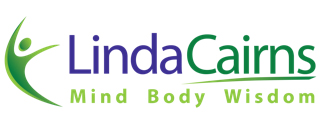|
|
|
It’s Vitamin D – for Diverse Vitamin D is a vital nutrient required by your body for a wide range of jobs, such as helping to boost your immunity so you are less likely to end up in bed feeling sick; playing a role in mood modulation – helping you feel good; and supporting your physical structure – making your bones and muscles strong. D is for Dense Bones How tough are your bones? Vitamin D improves the absorption of the minerals calcium and phosphorus, both of which are crucial for keeping your bones strong and dense. A vitamin D deficiency is strongly linked with osteoporosis and osteoporotic fractures. Therefore, having adequate vitamin D levels may reduce the risk of fractures as you get older. D is for Muscle Definition Are you feeling strong? Vitamin D is required by human muscle tissue to modulate muscle strength. A vitamin D deficiency can lead to muscle wastage, leaving muscles looking weak and weedy. Several studies have shown that vitamin D supplementation can improve muscle strength, function and balance. Not as Simple as Popping a Pill, or Sunbaking Common ways to build up your vitamin D include catching some sun or taking a supplement, however, vitamin D on its own may not be enough. Calcium, phosphorus and particularly magnesium are all needed to activate vitamin D and ensure it can do its many jobs properly; therefore if one of its cofactors is lacking then your vitamin D levels may be adversely affected. For example, recent studies have discovered a link between low vitamin D levels and magnesium deficiency. Magnesium is widely available in a variety of foods, such as green leafy vegetables, legumes, nuts, seeds, and whole grains, however, it is not uncommon for people to consume less than recommended amounts for optimal wellbeing. Signs that you might need some additional magnesium are twitching eyelids or cramps, fatigue, feeling stressed or perhaps a drop in mood, so if you are experiencing any of these symptoms speak with your Practitioner. 1 The ideal level of sun exposure to aim for in order to support vitamin D synthesis is six to seven minutes mid-morning or mid-afternoon during warmer months, and seven to forty minutes at noon during winter. Arms and shoulders should be visible and without sunscreen. (Nowson, McGrath, Ebeling, Haikerwal, Daly, Sanders, Seibel, Mason. Vitamin D and health in adults in Australia and New Zealand: a position statement. Med J Aust 2012; 196 (11): 686-687.) D is for Difference Your Practitioner is the best person to assess your nutritional needs and educate you on the most effective vitamin D supplement for you, particularly as not all supplements are the same. Your Practitioner will prescribe an appropriate supplement by assessing the following criteria, so you can be confident you are acquiring a good quality vitamin D:
|


